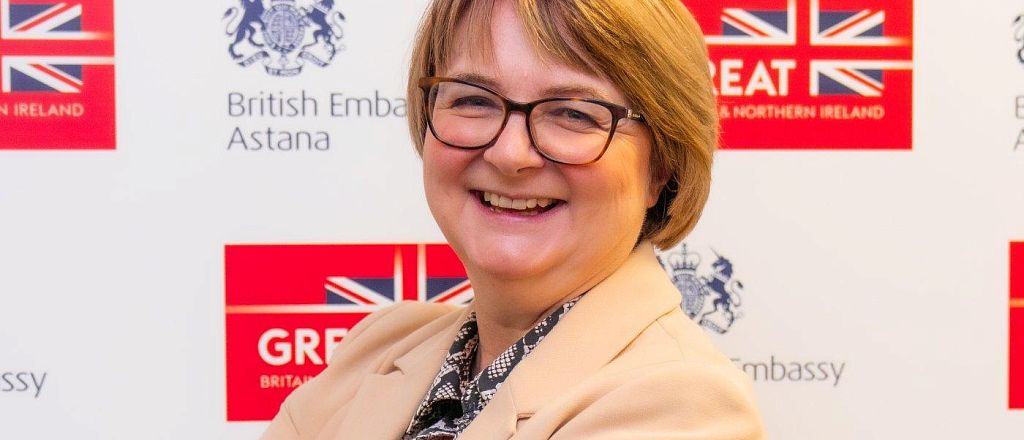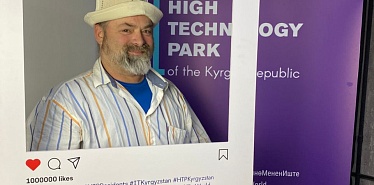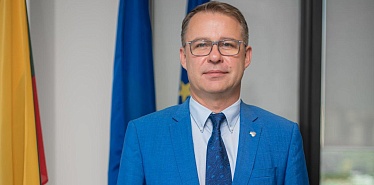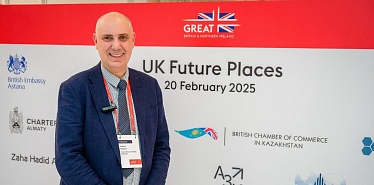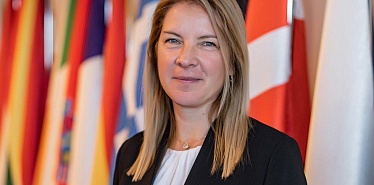The British Ambassador spoke about the universities in Kazakhstan where one can obtain a British degree and about opportunities for Central Asia's development in green energy.
Kathy Leach, city — Astana, British Ambassador to the Republic of Kazakhstan, @ukinkz
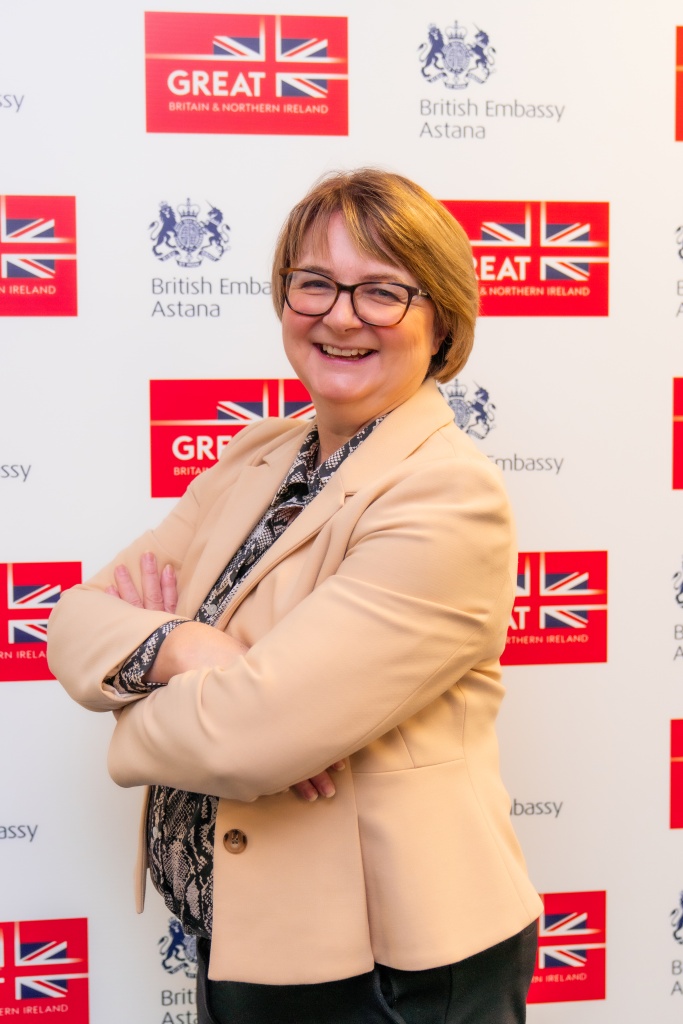
About myself
At school, I had a wonderful history teacher who sparked my interest in the history of relations between the Soviet Union and the West, the history of China, and world history. I also enjoyed foreign languages, so I studied Russian at university.
During that time, I met an old friend of my father, who was a diplomat. Before this meeting, it seemed to me that becoming a diplomat was something unattainable. Afterward, I realized that diplomats can actually be ordinary people, not just the elite. This idea became more real and achievable. And, eventually, my love for history and foreign languages led me to diplomatic service.
After graduating in 2001, I received my first assignment. It was in Moscow because I spoke Russian. This was an interesting and exciting experience for a newly-minted diplomat.
The next post was in Japan, where I worked in the field of energy policy. That’s when I realized how important the issue of climate change is. Japan became a brilliant example of a country without its own natural energy resources. For Japan, creating technologies to use energy resources as efficiently as possible became a national project. We learned a lot from Japan in the field of energy efficiency.
Then I was appointed Ambassador for the first time and went to Armenia. I enjoyed this country and came to love the Armenian people. In 2015, I returned to London, where I worked for six years. And in 2021, I was appointed Ambassador to Kazakhstan.
About activities
The mission of the Embassy is to promote and protect the interests of the United Kingdom abroad, build bridges between countries, and find areas for mutually beneficial cooperation.
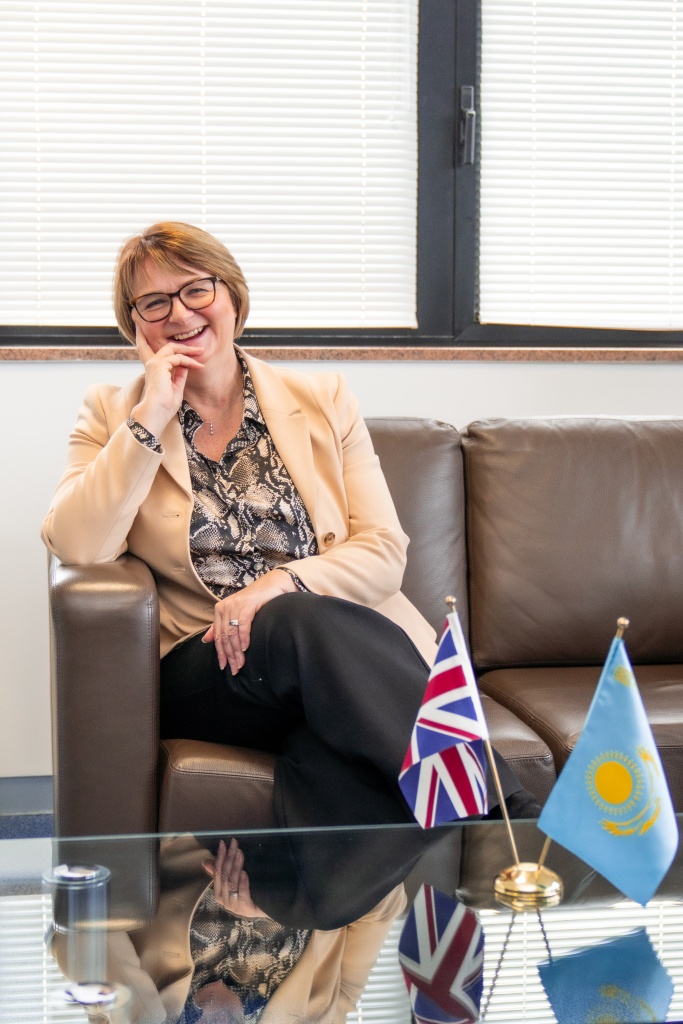
My work includes a political aspect: communicating with the government, discussing UK priorities, and participating in major multilateral events, such as the UN General Assembly.
It is also related to business and understanding how we can develop joint projects, attract British investments to Kazakhstan, or, conversely, help Kazakhstani investors and startups enter the British market.
My activities also involve people, education, and finding inspiring examples of cooperation, such as supporting projects implemented by British and Kazakhstani citizens.
About Central Asia
Kazakhs and Brits are somewhat alike. We are polite, reserved, and kind. Therefore, from a cultural perspective, I feel comfortable here. I love Kazakh music, especially the dombra. I also enjoy the work of Dimash Kudaibergen.
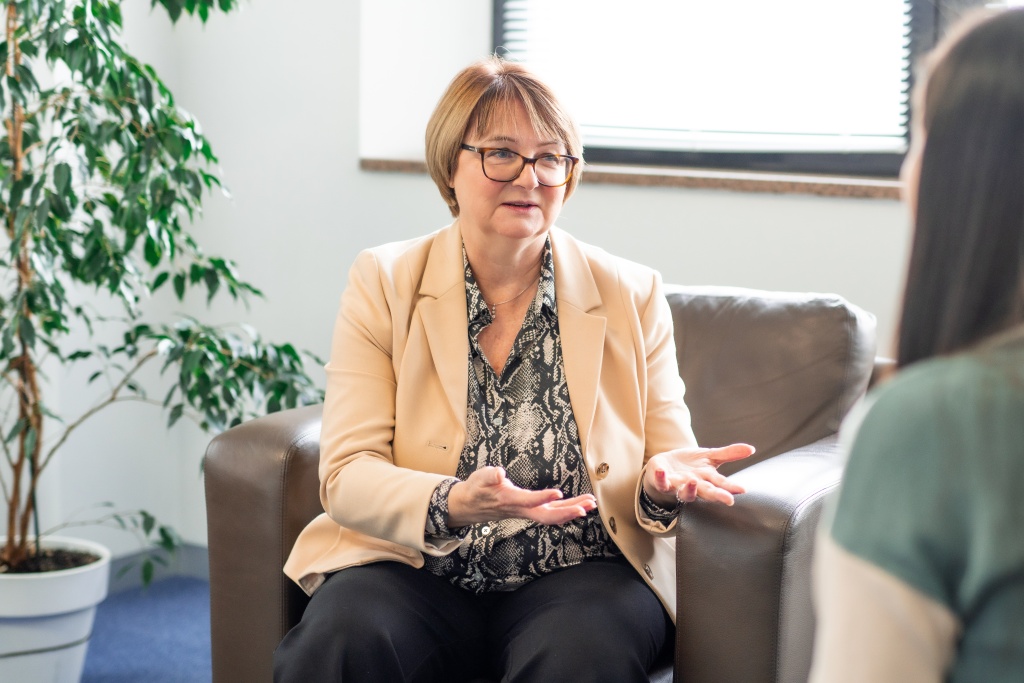
What strikes British people the most about Kazakhstan is its scale. Kazakhstan is ten times larger than the UK, and the landscapes here are extraordinary. I was amazed by the beauty of Katon-Karagay National Park in East Kazakhstan, Boszhira in Mangystau, and Altyn-Emel National Park near Almaty.
Lonely Planet recently named Kazakhstan one of the best countries to travel to in its annual Best in Travel 2025 ranking, and I completely understand why.
About activities in Central Asia
For the past 30 years, energy has been the key area of cooperation between our countries. Our energy companies have been major investors in Kazakhstan, with $16 billion invested over the past 13 years. Additionally, the British Council has been working in Kazakhstan for 30 years, focusing on developing English language teaching.
Today, we have three main areas of cooperation between our countries.
The first is education. Kazakhstan is going through an exciting period. The Minister of Education and the President have set a goal to turn Kazakhstan into an international hub. In this regard, international education is actively developing. Representatives of foreign universities, including those from the UK, are being invited to Kazakhstan to establish local campuses or launch dual degree programs. Over the past three years, two campuses have opened in Kazakhstan: De Montfort University in Almaty and Coventry University in Astana. Heriot-Watt University has opened a branch at Zhubanov University in Aktobe, where they teach oil and gas engineering and electrical engineering.
We also have several other universities that want to establish campuses here or collaborate with Kazakhstani universities. I am glad that British education is valued in Kazakhstan and that British universities are interested in coming to this region.
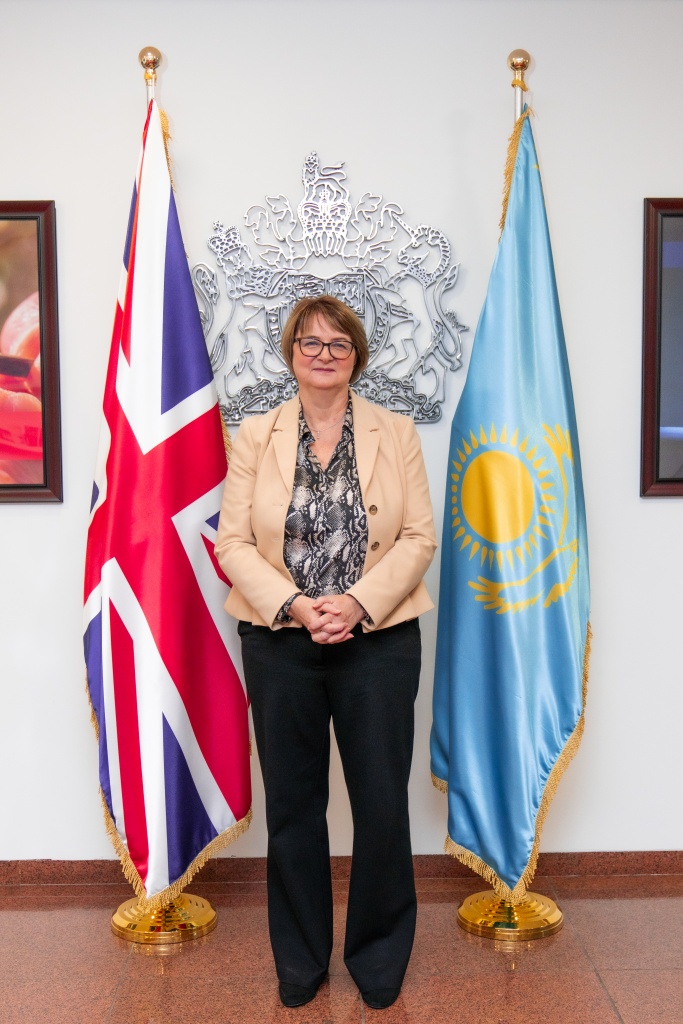
The second area is critical minerals: metals and minerals essential for technologies like iPhones or electric vehicle batteries. Kazakhstan has an incredible wealth of metals and minerals, many of which are still untapped and undeveloped. Therefore, it is important to use the best technologies and approaches in mining to ensure minimal environmental impact while helping to develop Kazakhstan's economy and industrial sectors. We have many companies working in the mining sector, providing the best technologies to make mining operations fast, efficient, clean, and environmentally friendly.
The third area is climate change. In the UK, we have done a tremendous amount of work over the past 15 years to shift our energy system from coal to wind. Previously, 40% of our electricity came from coal, and at the end of September, we closed the last coal power plant.
This is a significant issue for Kazakhstan. Many power plants dating back to the Soviet era are nearing the end of their service life. The country has a great opportunity to invest in new energy technologies. This is one of the areas we can work on together because we have experience in attracting investments in green technologies. We want to share this experience.
We have a new program for Central Asia on climate and energy. We are working with the World Bank and the German Development Agency to bring some of this experience to Kazakhstan and help Central Asian countries collaborate. Tajikistan and Kyrgyzstan have amazing hydropower potential, but it only works in the summer. The question is how to create a Central Asian energy system where countries can exchange energy.
For example, we are connected with France, Denmark, Ireland, and several other countries through electrical cables. This is the most efficient way: we buy and sell electricity to each other depending on who can produce it most cheaply. This is one of the ideas we want to help develop in Central Asia.
Due to climate change, water resources are diminishing, and we advocate for the efficient use of water resources. Therefore, it is important to ensure that irrigation systems do not waste water, that they are repaired and do not lose water through evaporation, and that every drop of water is used effectively.
Kazakhstan has an excellent opportunity to benefit from the transition to a green and efficient economy. This can become a driver for technological progress. I see a much greater understanding among the youth in Kazakhstan of why this is important, as well as their determination to make a positive difference. I think together we can achieve a lot.








